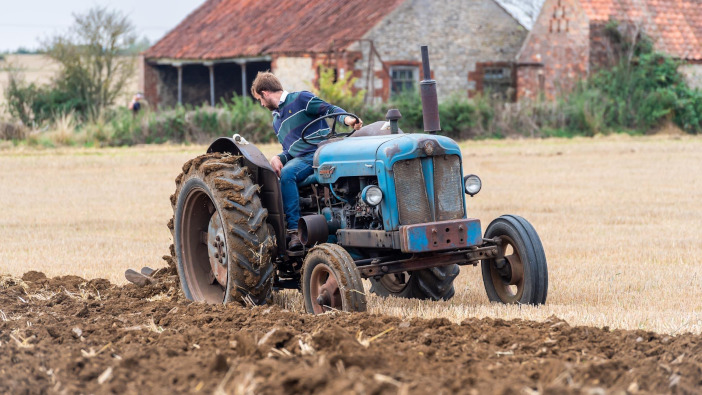The Fordson Major E1A, which was in production between 1952 and 1958, will celebrate 70 years at the Newark Vintage Tractor & Heritage Show this November.
Fordson fan Malcolm Booth plans to take six or seven models from the range, including a Fordson Major Mark II 1957-58, two Power Majors from 1959, three blue/orange Super Majors from 1962/63 and a 1964 blue/grey Super Major.
“There is a picture of me sitting on a Fordson Major when I was about two,” said Mr Booth. “Dad always had a smallholding and I’ve been collecting and working on them since the late 1970s. I had my first one in 1983 – a 1957 Mark II.
“My own son Thomas started restoring his first tractor at seven years old. It had come in for scrap. He spent all his holidays, nights and weekends scraping and cleaning it. I didn’t have the heart to scrap it and he restored it over the next seven years.”
Mr Booth lives in Nettleham, Lincolnshire and says that he acquires vintage tractors because he is passionate about them – not to make money.
“It is a hobby. I’ll never make money by fully restoring them because of the cost. I get people ringing up asking me to restore a tractor but when I tell them the price it is more than the tractor is worth,” he said. “I have to be straight with them. I don’t want to lead them up the garden path.”
For enthusiasts looking to restore their first tractor, he recommends a Fordson or Grey Ferguson. “There are loads of spare parts. They are very simple – you only need one set of spanners.”
James Hardstaff, a member of the Newark and Nottinghamshire Agricultural Society (NNAS) who farms 800ha in Nottinghamshire, has never missed the event since it started 20 years ago.
“I have been farming all my life. At 12-13 years old I learned to drive a Fordson,” he said. “I have 20-30 tractors and they are nearly all Fords. I have Majors, Power Majors, Dextas and Super Dextas.”
Mr Hardstaff expects to take up to ten tractors to the show this year and explained why he likes the range so much.
“I was brought up with it. Through the 1950s and 60s, they were the better tractors. There were a lot of derivatives of the Fordson Major. We still use it in a small way for grass topping but restoring them is a hobby. I spend most of my spare time working on them. We are hoping for a very successful show this year.”


